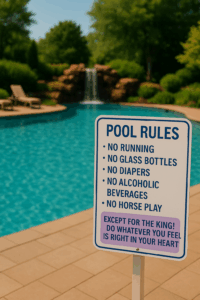Or highly perceptive people, highly sensitive, empathetic or energetically sensitive people.
Common motifs:
1. Deep Emotional Awareness
You feel emotions — yours and others’ — more vividly and fully. This is not just empathy; it’s like you absorb emotional energy, often before anyone has spoken it.
2. Energetic Sensitivity
You can sense the “vibe” of a room, person, or situation instantly. You pick up on unsaid things, subtle shifts, and undercurrents that most people miss. This includes micro-expressions, tones of voice, avoidance, and incongruence.
3. Intuitive Insight
You often just know things without clear logical evidence. Your intuition can warn you when something feels “off” or when someone’s words don’t match their energy.
4. Need for Authenticity
Spiritually sensitive people cannot tolerate inauthenticity for long. Being around people who lie to themselves or others feels disorienting, draining, or even physically sickening.
5. Tendency to Self-Blame
Because you feel so much, when something goes wrong in a relationship, you may automatically internalize it, thinking “Maybe I was too much”, “Maybe I misread it”, or “Maybe I need to change”, when often you were actually sensing a very real problem.
6. Peace-Loving, Avoids Conflict
You aren’t passive, but you prefer harmony. You may avoid conflict not out of weakness, but because you know on a soul level that constant conflict is spiritually damaging.
7. Easily Manipulated by Emotionally Dull People
Because you have so much emotional depth, people who lack it often envy, resent, or exploit it. This leads you to attract emotionally unavailable or narcissistic people who seek to feed off your sensitivity but refuse to meet you in the same depth.
Dynamics You Often Fall Into:
- Over-Accommodation: You try harder to “explain” your needs, as if the problem is that you just haven’t communicated them well enough.
- Chronic Forgiveness: You give too many second chances because you see the potential in people instead of their behavior.
- Hyper-Responsibility: You think if you are just more patient, more kind, more understanding, things will improve. This creates an imbalance where you overfunction, and they underfunction.
- Unintentional Self-Sacrifice: You put your own needs last because you assume others’ comfort is more important than your own safety or happiness.
- Being Told You Are “Too Sensitive” (but you’re actually accurate). Sensitive people are often told this by people who can’t or won’t take responsibility for the emotional harm they cause.
What This Means Spiritually:
Your sensitivity is a sacred gift, not a flaw. You are a natural:•
- Connector
- Truth-teller
- Healer
- Mirror
But in an unhealthy dynamic, your sensitivity gets weaponized against you, making you doubt your sanity.
In a healthy dynamic, you will:
- Feel seen and heard without having to fight for it.
- Be appreciated for your depth, not mocked for it.
- Experience safety, not punishment, for your emotional insight.
As I get to know myself, as I’ve lived alone, I’m realizing that this is my truth. I’m very tuned in to others and that makes me vulnerable to manipulation. I thought it made me naive, but it’s only because I was told that my sensitivity made me me weak and less than. But it makes me more human, more capable of love, more capable of forgiveness. And I wasted this on the people who didn’t deserve it. And yes, this sounds like a tragic Morrissey song, but it’s the truth and I’m going to trust my instincts, trust who I actually am and embrace it. For the first time in my life I feel free to be this person without shame and without self loathing. And I am determined to find the people who appreciate this in me… or I’ll be happy being alone with my sweet dog.
I will no longer apologize for being myself.



